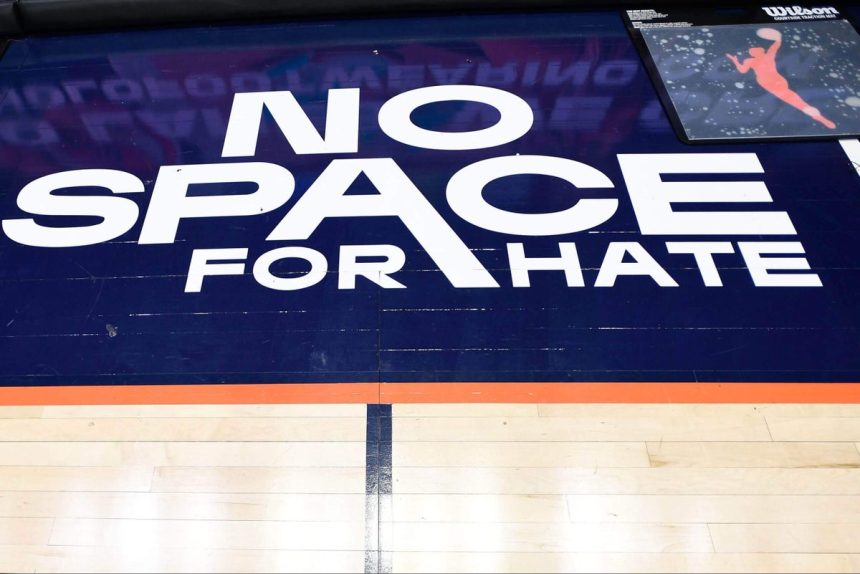Introduction
Recent incidents involving bright green sex toys thrown onto WNBA courts have sparked a range of reactions among players and fans. What began as a laughable stunt quickly escalated into a serious issue regarding respect and safety in women’s professional sports.
Series of Disruptions
The first incident occurred last week during a game in Atlanta, where players responded with humor on social media. However, the mood shifted when a similar event disrupted a game in Chicago, prompting Sky center Elizabeth Williams to describe it as “super disrespectful.” In a subsequent game between the Sparks and Fever, L.A. guard Kelsey Plum responded by kicking the object off the court.
Implications on Respect and Safety
Players are faced with a challenging dilemma on how to react to these inappropriate disruptions. Whether the act originates from a coordinated effort or is merely the work of attention-seekers, it is not the responsibility of athletes to engage with what many see as crude humor. Such actions go beyond mere pranks.
- Major League Baseball, Major League Soccer, and preseason NFL games proceed without similar incidents. Why are these disruptions occurring only at WNBA games?
In the past two seasons, the WNBA has experienced substantial growth, with record attendance, increasing television audiences, and significant investments. Yet, despite these advancements, players still face moments of mockery that undermine their reputations as elite athletes. Addressing the absurdity of these incidents, Sophie Cunningham noted on her “Show Me Something” podcast: “Everyone’s trying to make sure the W is not a joke and it’s taken seriously, and then that happens.”
A Call for Better Security
Concerns have also been raised about arena security. Isabelle Harrison tweeted, “ARENA SECURITY?! Hello??! Please do better. It’s not funny. never was funny. Throwing ANYTHING on the court is so dangerous.”
Historical Context
The motivations behind targeting WNBA games with such demeaning acts are rooted deeply in a longstanding pattern of disparagement towards women in sports. Historically, athletics has been a male-dominated space, and efforts to diminish female participation have included everything from medical barriers to outright harassment.
For example, female athletes were once required to present “femininity certificates” to compete, and they faced invasive scrutiny to prove their gender. Such messages of humiliation and control have persisted throughout history, exemplified by notorious incidents involving figures like Katherine Switzer and Bobby Riggs, who perpetuated harmful stereotypes about women’s roles.
The Bigger Picture
The recent trend of throwing sex toys at WNBA games highlights a troubling intersection of misogyny, sexual objectification, and sports culture. It underscores a broader disdain faced by female athletes, particularly in a league known for its openness about LGBTQ+ identities. This behavior is indicative of a larger societal issue, with the messages behind these acts resonating clearly.
As these incidents unfold, it becomes increasingly evident that they are not mere pranks but efforts to belittle and disrespect women in sports. The WNBA deserves to be recognized for its excellence, not subjected to ridicule.






